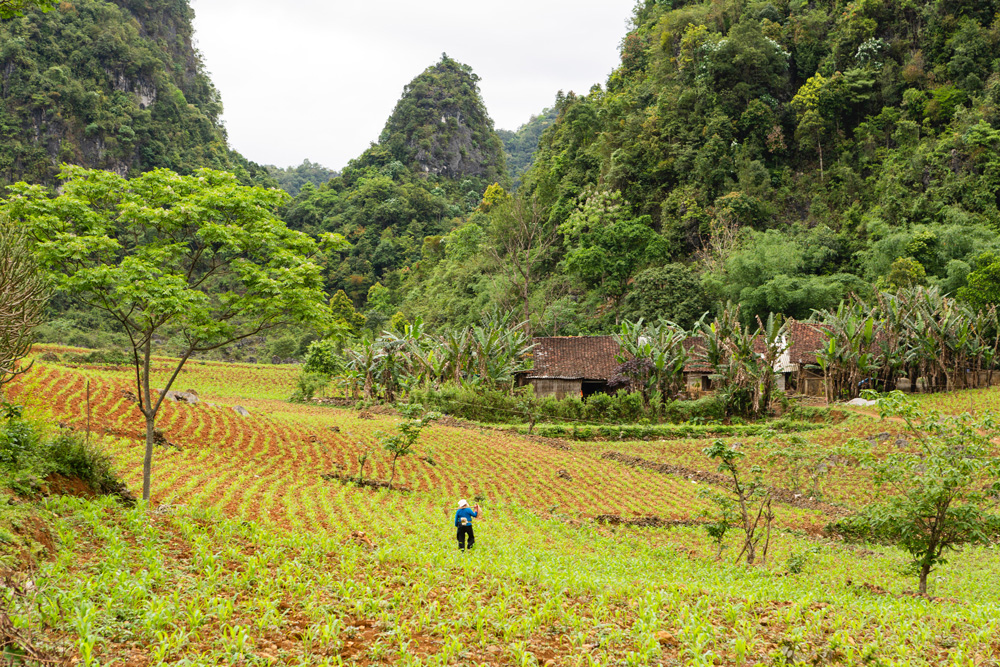After a steady decrease during several decades, world hunger is now on the rise. On the World Food Day, Swedish scientists, and civil society representatives, encourage cooperation and offer solutions to reduce hunger and transition to sustainable food systems.
The Food and Agriculture Organization of the United Nations, FAO, states that approximately 820 million people suffer from chronic hunger. However, this number has been increasing for the fourth year in a row. The effects of climate change on agriculture production being one crucial factor.
We are up against several global challenges. The Intergovernmental Panel on Climate Change (IPCC) of the United Nations reports that land use in forestry and agriculture represent 23 percent of all man-made greenhouse gases.
Making forestry and agriculture sustainable is crucial if we are to acheive the climate goals of the Paris Agreement. One million plant and animal species in the world are threatened with extinction. And more than three quarters of farmed crops depend on endangered pollinating insects, such as bees.
The majority of extremely poor people live in rural areas and work with agriculture. Small-scale farming continues to produce most of the food in the world. Improving opportunities for farmers in poorer countries is crucial to avert hunger. They are fighting to survive in a changing climate and with fluctuating world prices, their livelihoods rely on the ecological systems that surround them.
The EAT-Lancet report on food, health and diet stresses that agriculture must change from producing large volumes of few crops to producing a variety of different crops with a focus on nutritious diets.
There are solutions. One example, raised by the climate panel of the United Nations, is agroforestry and similar farming systems where trees are planted amongst crops and animals. Agroforestry can provide nutritious food and create resilience against the effects of climate change, such as droughts and floods, whilst binding carbon dioxide in trees and soil.
It’s crucial to employ a gender equality perspective in the fight against hunger. According to FAO, equal opportunities between women and men and access to resources and land, could redecude the number of hungry people by 100-150 million.
Creating sustainable food systems requires simultaneous actions across different sectors and by many actors. We hereby encourage the Swedish government, investors, researchers, the private sector and civil rights organizations to cooperate in order to:
- Increase knowledge development about sustainable food systems for nutritious food.
- Develop value chains, and create demand for higher crop variety and nutritious food, produced with a human rights-based approach in mind.
- Push for agricultural subsidies that facilitate crop diversification in order to decrease hunger, improve nutrition and contribute to sustainable farming.
- Increase the understanding and knowledge about the central role of gender equality in the work against poverty and hunger.
- Prioritize agriculture in low-income countries and focus on the production methods supporting climate action, agro and biodiversity and nutritious diets.
We must work together for global sustainable food systems in the fight against hunger.
This is a translation of the op-ed article published in Aktuell Hållbarhet. Read the original article in Swedish.
This op-ed article is written by Line Gordon, Head of Stockholm Resilience Center, Stockholm University; Sara Gräslund, Head of Unit, SLU Global; Kristina Mastroianni, Technical Director Agriculture, NIRAS; Christina Schaffer, Agroforestry Sweden; Maria Schultz, International Director, Vi-Agroforestry; Annika Åhnberg, Chair, SIANI; Ingrid Öborn, professor, Swedish University of Agricultural Science and Maria Ölund, project leader for the research network Focali.
